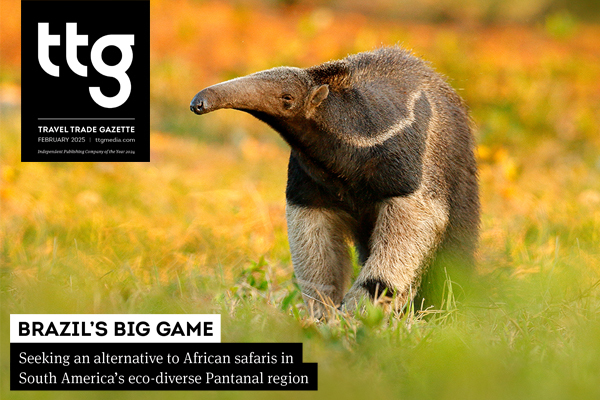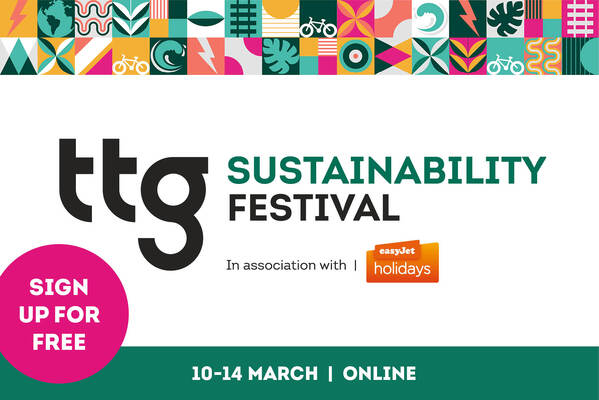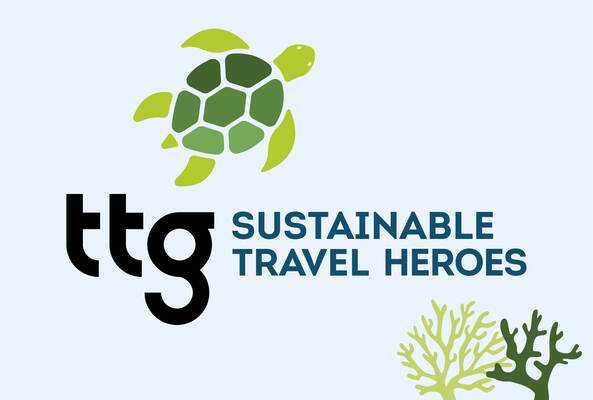'The decision to halve domestic APD is shameful'
 Sophie Griffiths
Sophie GriffithsIn a matter of days, the UK will welcome leaders from around the world to Glasgow for the UN Climate Change Conference (Cop26) to discuss the climate emergency facing our planet.
The topic of global warming is (quite rightly) everywhere, with warnings being issued from David Attenborough to Greta Thunberg to Prince William. And sustainability is now a key talking point at every travel conference and in every interview the TTG team conducts with industry leaders.
It has to be – after all, we all have a role to play in tackling the climate crisis.
Although not, apparently, if you’re the UK chancellor. I watched Rishi Sunak announce his budget – complete with the announcement that Air Passenger Duty on domestic flights would be halved from April 2023 – with open-mouthed horror.
This might be a controversial opinion to express as the editor of a travel trade magazine, but I believe the decision to reduce tax on domestic flights is shameful.
Because as general secretary of the transport union TSSA Manuel Cortes points out: “Domestic air flights cause seven times the carbon impact of rail journeys.”
The UK is not a big country. In fact there are 11 US states which are vastly bigger (Alaska, Arizona, California, Colorado, Michigan, Montana, Oregon, Nevada, New Mexico, Texas and Wyoming if you’re interested). We do not need to fly to places within this country, especially while other countries around the world are doing their utmost to reduce their carbon footprint. France for instance, passed legislation in April to ban air travel for routes of less than 2.5 hours that can be replaced by direct high-speed trains.
Yes, the UK has the slight issue in that our trains are infinitely inferior to the high-speed TGV trains of France. But would it not then, be wiser to use the taxes raised from domestic APD to directly fund better – and cheaper – train travel?
And true, halving domestic UK APD creates a level playing field with Europe, where passengers previously paid lower APD for flights to the continent than they did on a return within the UK. It’s true too, that any support for local airports is a huge boon, especially after the ravages of the pandemic.
But still, the decision to halve domestic APD feels like a lazy way to appease a bruised and battered sector (bruised and battered largely as a result of government inaction when we needed it most last year, I hasten to add). And as we prepare to welcome leaders to discuss climate change, Sunak’s decision is quite frankly embarrassing.
Conversely, even more frustrating is Sunak’s announcement of a new ultra long-haul band in Air Passenger Duty. It’s excruciating because we all know this is simply more money to line the taxman’s coffers.
Years ago I asked a government minister where APD funds actually went. After a few “umms” and “ahhs” she eventually admitted she couldn’t say – it just went straight into the treasury funds.
And this is exactly the problem. APD was first introduced in 1994. It must have raised billions in that time. That is a lot of money that could have gone into reducing aviation’s carbon footprint by improving train travel or accelerating the development of electric aircraft. It could even have been used as emergency funding over the last 18 months, to help support the very industry that produced these funds.
Instead, 27 years after it was first introduced, we have a government still dithering about how much APD should cost, rather than focusing on the more crucial question of what should be done with the funds collected – namely how it could be used to aid greener, cleaner travel.
Aviation is not the enemy and it is not the worst polluter. A UN report highlighted in 2018 that the fashion industry consumes more energy than the aviation and shipping industry combined (and yet you don’t see a clothes shopping tax being introduced).
But the travel industry could – and should – be doing more to play its part in reducing its carbon footprint. And it needs government support in order to do so.
Once again, the government has let this industry – and now the planet – down. And at a time when it could, and should, be doing so, so much more.
Sign up for weekday travel news and analysis straight to your inbox

Sophie Griffiths
Supplier Directory
Find contacts for 260+ travel suppliers. Type name, company or destination.














